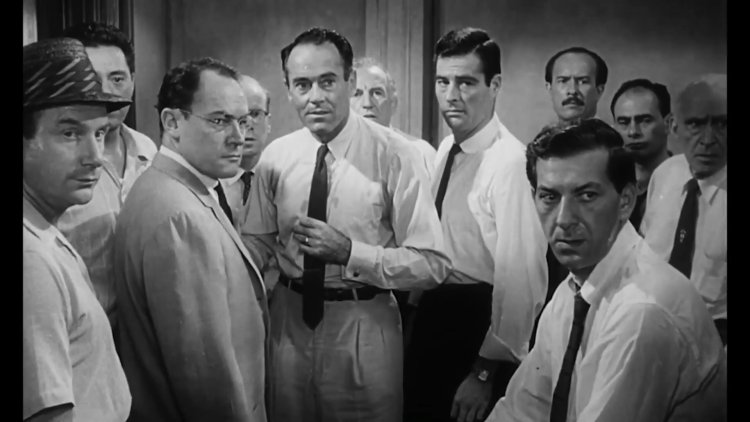'12 Angry Men' (1957)
Welcome to our comprehensive exploration of "12 Angry Men" (1957), a classic courtroom drama directed by Sidney Lumet. In this article, we delve into the gripping narrative, powerful performances, and thought-provoking themes that make this film a timeless masterpiece. Prepare to witness a captivating examination of the human condition and the complexities of the justice system.

A Deliberation That Grips the Audience
"12 Angry Men" takes place entirely within the confines of a jury room, where twelve jurors must determine the guilt or innocence of a young man accused of murder. The film expertly captures the tension and dynamics that arise during the deliberation process. As the jurors debate the evidence and clash over their preconceived notions, the film immerses viewers in the intense emotional and intellectual struggle at the heart of the story.
Nuanced Characters and Stellar Performances
The film's strength lies in its exceptional ensemble cast and their nuanced portrayals of the twelve jurors. Each character brings a unique perspective and personal baggage to the table, shaping the dynamics of the group. Notable performances include Henry Fonda as Juror #8, the lone dissenter who challenges the group's initial verdict, and Lee J. Cobb as Juror #3, whose deeply held prejudices influence his stance. The performances throughout the film are a masterclass in acting, as each actor brings depth and authenticity to their respective roles.
Examining Prejudice and Stereotypes
"12 Angry Men" serves as a powerful exploration of prejudice, stereotypes, and the impact they have on the pursuit of justice. The film tackles themes of racial and social prejudice, as well as the ways in which personal biases can cloud judgment. Through the deliberations, the jurors' prejudices are laid bare, forcing them to confront their own biases and reconsider their initial judgments. The film prompts viewers to reflect on their own assumptions and the potential consequences of prejudice in the legal system.
The Power of Reason and Critical Thinking
At the heart of "12 Angry Men" is the idea that justice can be achieved through reason and critical thinking. Juror #8, played by Henry Fonda, stands as a symbol of rationality and integrity. He challenges the group's conformity and encourages them to reexamine the evidence and consider alternative perspectives. The film emphasizes the importance of open-mindedness, logical reasoning, and a willingness to question established norms.
Tension and Cinematic Craftsmanship
Despite its confined setting, "12 Angry Men" is a masterclass in cinematic craftsmanship. Sidney Lumet's direction creates a palpable sense of tension, utilizing various techniques such as close-ups, camera angles, and spatial dynamics to heighten the intensity of the deliberations. The film's pacing and editing contribute to the building suspense, as the tension escalates with each passing moment. Lumet's attention to detail and meticulous control over the film's visuals enhance the dramatic impact and captivate audiences from start to finish.
A Timeless Examination of Human Nature
"12 Angry Men" stands the test of time due to its universal exploration of human nature and the complexities of morality. The film goes beyond the boundaries of the courtroom drama genre, delving into deeper questions about individual responsibility, empathy, and the nature of truth. It holds a mirror to society, challenging viewers to examine their own beliefs and biases, and prompting discussions on the nature of justice and the flaws within the legal system.
Also Check FSR 2.0 Coming to Xbox Series S|X
A Lasting Legacy
"12 Angry Men" has had a lasting impact on both cinema and popular culture. Its compelling storytelling, layered characters, and powerful performances continue to inspire filmmakers and captivate audiences. The film's enduring relevance




























